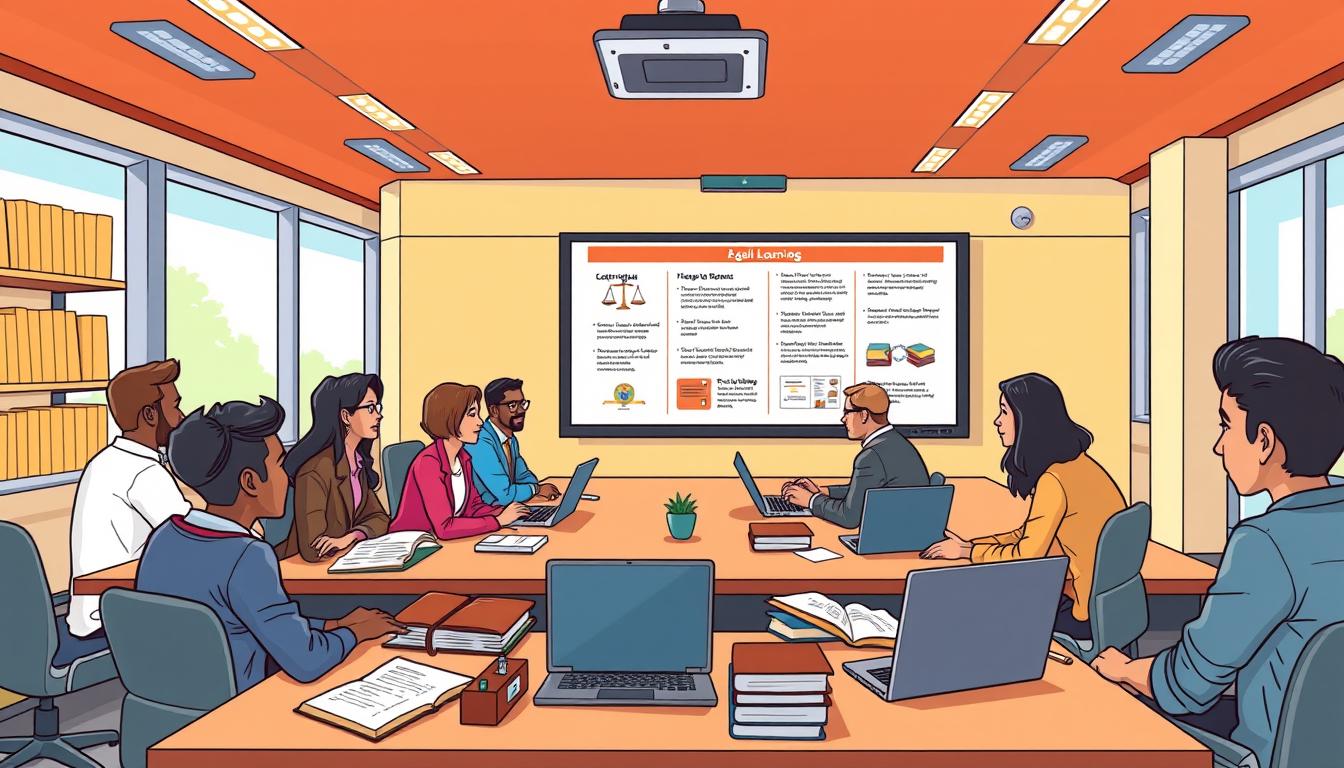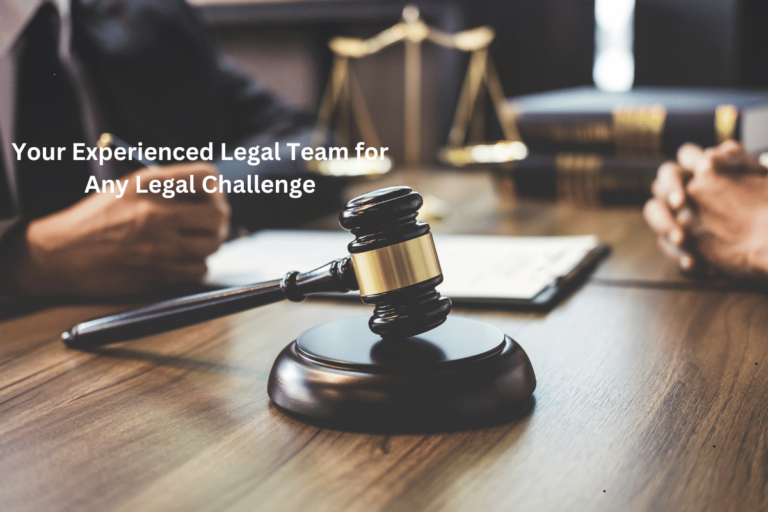Continuing Legal Education and Skill Building
Are you keeping up with the ever-evolving legal landscape? As a legal professional, your growth and development are key. They help you deliver top-notch client services and stay ahead. But how do you keep your skills sharp in a fast-changing industry? Welcome to our guide on Continuing Legal Education and Skill Building.
We’ll look at why legal education must evolve. We’ll also dive into the latest trends in professional development. Plus, we’ll explore alternative ways to get licensed and prove your skills.
We’ll discuss the details of mandatory continuing legal education (CLE) rules. We’ll also show you free and low-cost CLE options. And we’ll talk about the importance of well-being and inclusion in the legal field. Get ready for a journey of lifelong learning and growth.
The Importance of Legal Education Evolution in Modern Practice
The legal world is always changing. Lawyers must keep up with new laws and standards. Continuing legal education (CLE) and lawyer programs help them stay sharp.
Current Trends in Professional Legal Development
In the last ten years, legal education has changed a lot. Law schools now focus more on practical skills and problem-solving. They use new teaching methods to prepare students for real-world law.
Impact on Career Advancement
Staying current through legal seminars boosts a lawyer’s career. It makes them more competitive and ready for tough cases.
Meeting Industry Standards
Many places require lawyers to keep learning through CLE. This shows they care about their work and want to serve clients well.
Legal education is key in today’s fast-changing world. Lawyers who keep learning can grow their careers and help their clients more effectively.
| Metric | Value |
|---|---|
| Average training period for future lawyers | 3 years of first-rate education |
| Curricular reforms at selected law schools (2007-2009) | Indicating some changes within the legal education system |
| Reluctance to declare an end to the chapter on legal education reform | Possibility of further enhancements |
“The Alternative Vision of legal education emphasizes the importance of superb practitioners demonstrating specific capacities such as observing closely, listening attentively, and reading discerningly.”
Alternative Pathways to Legal Licensure and Competency
The legal world is changing, and so are the ways to become a lawyer. The American Bar Association (ABA) has backed new ways to become an attorney. This is a big change from the old bar exam model that’s been around for over a century.
This change shows that there are many ways to prove you know how to be a good lawyer. States are now looking into new ways to license lawyers. They want to make legal services more available, have a more diverse legal field, and make sure new lawyers have the skills they need.
Some new ways to become a lawyer include:
- Supervised practice programs, where new lawyers work under the watch of experienced ones.
- Experiential education portfolios, where lawyers show their skills and knowledge through real work examples.
- Specialized courses and training, to help replace or add to the old bar exam.
- Easy paths for public interest lawyers, because they face special challenges.
These new ways aim to open up the legal field to more people. They want to bring in new ideas and make sure the next generation of lawyers is ready for today’s legal world. As the legal world keeps changing, these new paths are a big step towards a more diverse and accessible legal system.
“The embrace of alternative licensure pathways represents a pivotal moment in the pursuit of a more diverse, competent, and accessible legal system.”
Understanding Continuing Legal Education and Skill Building Requirements
In the fast-changing legal world, it’s key to keep up with new standards and improve skills. Continuing Legal Education (CLE) programs help legal pros stay sharp and competitive. These efforts, from bar associations and law firms, make sure lawyers can serve clients well.
Mandatory CLE Credits
The legal field is expected to grow by five percent from 2019 to 2029, says the U.S. Bureau of Labor Statistics (BLS). To match this growth, lawyers must take regular CLE credits. The American Bar Association (ABA) offers CLE for live events, webinars, and online courses.
State-Specific Requirements
CLE rules differ by state, and the number of credits needed also varies. For instance, in New York, seasoned lawyers need 24 CLE hours every two years. Newbies must get 16 hours each year for their first two years. In California, lawyers must earn 25 CLE hours every three years, with special rules for ethics and bias.
Compliance and Reporting
It’s vital for lawyers to follow CLE rules to avoid trouble. Not meeting CLE hours can lead to disciplinary actions or even losing a license. Lawyers must keep track of their CLE hours and report them to their state bar to stay in good standing.
| State | CLE Requirement | Specific Requirements |
|---|---|---|
| New York | 24 hours every 2 years | 4 hours ethics, 1 hour diversity, 1 hour cybersecurity |
| California | 25 hours every 3 years | 4 hours ethics, 1 hour competence, 1 hour bias |
| Florida | 30 hours every 3 years | 5 hours ethics, professionalism, substance abuse, or mental health |
| Texas | 15 hours annually | 12 hours accredited CLE, 3 hours legal ethics |
| Illinois | 30 hours every 2 years | 6 hours professional responsibility, 1 hour diversity, 1 hour mental health |
| Washington, DC | No mandatory CLE | N/A |
Free and Low-Cost CLE Opportunities for Attorneys
Staying current with legal trends is key for lawyers. Luckily, many free and low-cost Continuing Legal Education (CLE) options are out there. Clio, a top legal tech company, offers free CLE courses. These are approved by state bars in the U.S. and Canada.
Clio provides free CLE credits. They work with the American Bar Association (ABA) for CLE and CPD credits. Many of their live events are approved for credits in states like Alabama, California, New York, and Texas.
Lawyers can get free CLE credits by doing pro bono work or joining mentoring programs. This meets state requirements and helps the legal community grow. It also boosts their own skills.
“Free Continuing Legal Education (CLE) courses are offered to help legal professionals stay updated and fulfill state bar requirements without additional costs. These opportunities ensure attorneys can maintain their competency and provide high-quality service.”
In today’s legal world, lawyers face anxiety, depression, and stress. Free and low-cost CLE resources help a lot. They keep lawyers informed, improve their skills, and serve clients better.
Professional Development Through Structured Mentoring Programs
Structured mentoring programs are great for legal professionals at any stage of their career. They offer personalized guidance, help in developing skills, and support career growth in the legal field.
Benefits of Mentorship
Mentorship programs bring many benefits to both mentors and mentees. Mentors learn how to coach, counsel, listen, and lead. Mentees get better at communicating, perform better, and get recognized by their organization.
Program Implementation
- Formal and informal mentoring programs are key to professional growth in firms like Munger, Tolles & Olson.
- The Women+ Initiative at the firm works to attract and keep women lawyers. It helps them succeed in their careers and ensures they are well-represented in leadership.
- From August 28 to October 2, 2023, mentors and mentees are matched. They are expected to meet regularly for at least six months.
- Mentors include experienced lawyers, experts from both public and private sectors, and leaders from the FBA. They help law students, new lawyers, and those changing careers or moving to a new place.
Measuring Success
| Metric | Outcome |
|---|---|
| Mentor Skill Development | Improved coaching, counseling, listening, and leadership abilities |
| Mentee Performance | Enhanced communication skills and organizational recognition |
| Program Retention | Mentors and mentees actively participating for the full six-month duration |
By starting structured mentoring programs, law firms and the legal world can build a culture of professional development and lawyer education. This helps attorneys grow and succeed in their careers.
Technology and Innovation in Legal Education
The legal world is changing fast, thanks to new technology. Legal experts need to keep up with these changes. This has led to new ways of learning law, helping lawyers stay current in the digital world.
Online learning sites are now common, offering legal education anytime. They have legal seminars and legal workshops on many topics. This lets lawyers improve their skills without disrupting their busy lives.
Virtual reality (VR) is also being used in law school. It lets students practice important skills like courtroom work in a safe space. VR helps them learn by doing, preparing them for real-world legal work.
Artificial intelligence (AI) is changing legal education too. AI tools help lawyers find and analyze information quickly. This lets them understand the law better and make smarter decisions, improving their work.
It’s key for law schools and professionals to keep up with new tech. By doing so, they help future lawyers handle the complex legal world of today.
| Technological Advancement | Impact on Legal Education |
|---|---|
| Online Learning Platforms | Provide flexible and accessible legal seminars and legal workshops |
| Virtual Reality Simulations | Offer immersive, hands-on learning experiences for practical skills development |
| Artificial Intelligence | Enhance legal research and analysis capabilities, improving overall competence |
As the legal world keeps changing, it’s vital for law schools and experts to use new tech. This way, they make sure future lawyers are ready for today’s legal challenges.
“The legal industry is undergoing a profound transformation, driven by the rapid advancement of technology. Legal professionals who embrace these innovations will be better positioned to thrive in the modern legal landscape.”
Maintaining Well-being and Professional Excellence
In the demanding legal field, keeping well-being and professional excellence is key. Lawyers face special challenges that can harm their mental, physical, and emotional health. Studies reveal that 36% of lawyers are problem drinkers, 28% have depression, and 23% show mild or higher stress symptoms.
Anxiety hits 19% of legal pros, and lawyers have a suicide rate 1.33 times the national average.
Stress Management Techniques
The legal world is now focusing on well-being. Many law firms offer “Balance(d) & Focus(ed)” programs for fitness, nutrition, and stress relief. Employees can also use mental health resources through employee assistance programs.
The Well-Being in Law movement pushes for addressing well-being issues. This ensures lawyers can thrive without harming their health.
Work-Life Balance Strategies
Keeping a healthy work-life balance is vital for well-being. Setting boundaries, taking breaks, and focusing on self-care can help manage stress and prevent burnout. The ABA’s Well-Being Pledge shows the legal field’s commitment to mental health and well-being.
Mental Health Resources
Legal groups are investing in mental health support for their employees. They offer counseling, mindfulness, and workshops on resilience and emotional intelligence. This shift aims to make well-being a core part of professional success in law.
By tackling legal pros’ unique challenges and offering comprehensive well-being programs, the legal field can help its members. They can enhance their attorney skill enhancement and join bar association programs while focusing on their health and well-being.
Building a Diverse and Inclusive Legal Profession
The legal field has long struggled with diversity and inclusion. The ABA National Lawyer Population Survey shows 86% of lawyers are white, with little change in a decade. Only 37% of lawyers are female, highlighting a gender gap.
It’s vital for the legal community to mirror the diverse clients it serves. Law firms can set diversity goals and align efforts and pay. A diverse firm can attract more clients and grow.
To increase diversity, law firms need a hiring plan that focuses on diversity at all levels. Employers should move away from just looking at grades or law school. This approach helps build a more diverse legal team.
Diversity and inclusion efforts can include:
- Mentoring diverse attorneys, law students, and students interested in law
- Incorporating diversity topics in meetings and events
- Professional development programs on microaggressions, creating a safe environment, and cultural competency
By investing in these initiatives, law firms can make the legal profession more diverse and inclusive. This benefits the industry and the communities it serves.
| Initiative | Description | CLE Credit |
|---|---|---|
| Lunchtime Learning CLE | “Recognizing Burnout: Building a supportive legal workplace” | 1.0 AAMH CLE credit (NV) |
| Lunchtime Learning CLE | “Recognizing and Responding to Microaggressions” | 1.0 Ethics CLE credit (NV) |
| Lunchtime Learning CLE | “Bystander Intervention: Promoting a Safer and More Inclusive Environment” | 1.0 Ethics CLE credit (NV) |
| Lunchtime Learning CLE | “Working Towards a More Diverse Legal Profession” | Funded in part by State Bar of Nevada’s IDEA Grant |
| DICE CLE Series (2023) | Funded in part by State Bar of Nevada’s IDEA Grant and sponsors | N/A |
| Cultural Competency in the Legal Profession | N/A | 1.0 hour of Ethics CLE for Nevada lawyers |
| Preventing Workplace Discrimination | N/A | 1.0 hour of CLE for Nevada lawyers |
By embracing diversity and inclusion, the legal profession can strengthen its foundations. It can better serve the diverse communities it represents.
Conclusion
As we wrap up this guide, it’s clear that the legal world needs a culture of constant learning. The legal field is changing fast, thanks to new tech and shifting standards. Legal pros must keep improving their skills and knowledge.
Continuing Legal Education helps lawyers stay sharp. It boosts their skills, service to clients, and career growth. Learning new ways to research, communicate across cultures, and use new tools is key.
The legal world must also be diverse and welcoming. It should offer training and support for everyone, no matter their background. By focusing on well-being and work-life balance, the legal field can offer rewarding careers.
Source Links
- Continuing Legal Education (CLE) from LexisNexis®
- Oklahoma Mandatory Continuing Legal Education
- CLE Credits At Your Fingertips
- untitled
- untitled
- ABA Endorses Alternative Attorney Licensing Pathways
- Nevada Supreme Court Approves Plan to Proceed with Developing Alternative Attorney Licensing Pathway in State
- Materials for AALS Concurrent Session: Alternative Pathways to Bar Licensing
- Continuing Legal Education and Professional Development in Legal Professions
- Everything You Need to Know About CLE Requirements (With Examples!)
- CLE
- Free CLE |
- Training & Attorney Development
- Lift Up Leaders Mentorship Program
- Continuing Legal Education: Embracing Lifelong Learning in the Legal Profession
- The State Bar of California
- Institute For Well-Being In Law –
- ESP Professional Growth Continuum | NEA
- Well-being in Higher Education
- 5 Tips and Strategies to Build a Diverse and Inclusive Law Firm
- Diversity, Equity and Inclusion – State Bar of Nevada
- Diversity and Inclusion Activities
- untitled
- Principles & Standards for Legal Research Competency







